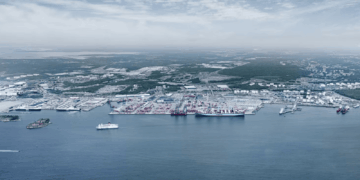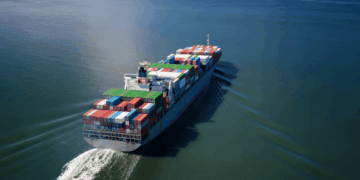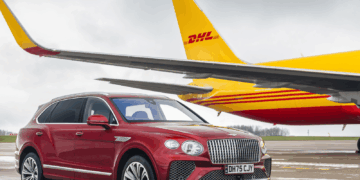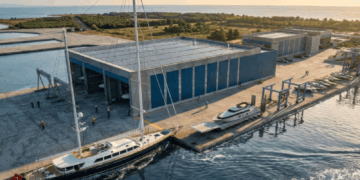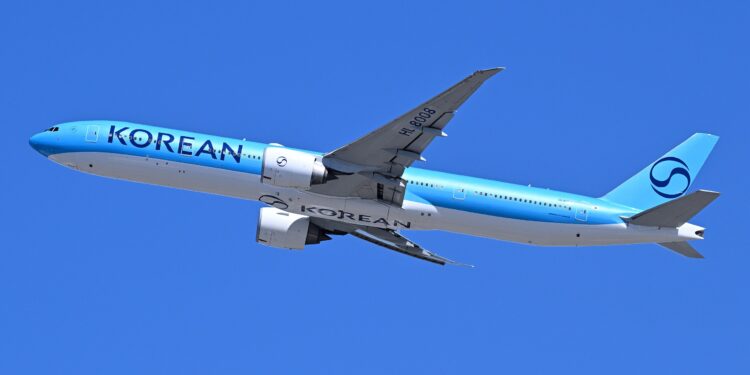Korean Air has confirmed plans to significantly expand and modernise its fleet with the purchase of 103 state-of-the-art aircraft from Boeing, alongside 19 spare engines from GE Aerospace and CFM International, as well as a long-term maintenance partnership with GE Aerospace.
The agreements, valued at approximately USD 50 billion (KRW 70 trillion), include USD 36.2 billion (KRW 50 trillion) for the Boeing aircraft, USD 690 million (KRW 1 trillion) for spare engines, and USD 13 billion (KRW 18.2 trillion) for a 20-year engine support programme.
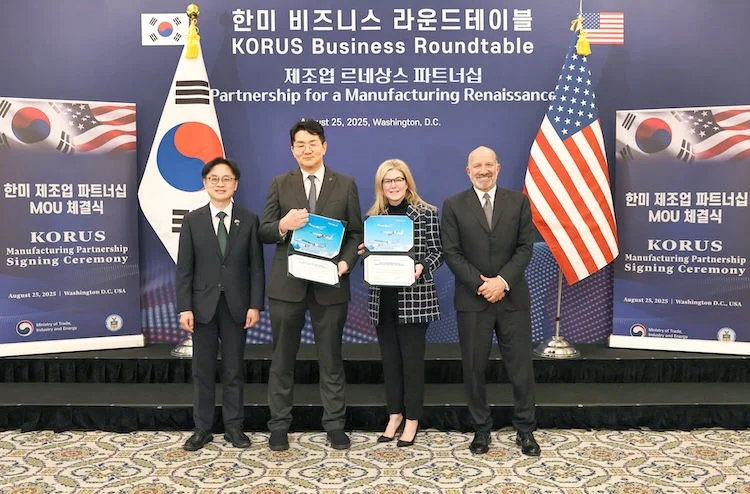
The contracts were officially signed in Washington D.C. on August 25, in the presence of Walter Cho, Chairman and CEO of Korean Air and Hanjin Group; Stephanie Pope, President and CEO of Boeing Commercial Aeroplanes; and Russell Stokes, President and CEO of Commercial Engines & Services at GE Aerospace.
As part of the order, Korean Air will introduce 20 Boeing 777-9s, 25 Boeing 787-10s, 50 Boeing 737-10s, and eight Boeing 777-8F freighters, with deliveries scheduled gradually through 2030.
This large-scale acquisition is designed to underpin Korean Air’s long-term expansion following its integration with Asiana Airlines. The plan accounts for current delivery delays across the aviation sector and extends into the mid-to-late 2030s.
Looking ahead, Korean Air aims to streamline its operations by centring its fleet around five modern aircraft families: the Boeing 777, 787 and 737, along with the Airbus A350 and A321-neo. Korean Air aims to drive consistent growth, simplify operations, increase fuel efficiency, lower emissions, and elevate the passenger experience through this strategy.
The order also includes 11 spare engines from GE Aerospace and eight from CFM International. Additionally, GE Aerospace will provide comprehensive maintenance services for 28 aircraft over the next two decades, bolstering Korean Air’s operational reliability and safety.
Korean Air has long played a vital role in connecting Korea and the United States. The airline first established a U.S. cargo route in 1971 and launched its first passenger service to the U.S. the following year. Today, this legacy continues through its joint venture with Delta Air Lines across the Pacific.
This latest investment further solidifies Korean Air’s longstanding partnership with U.S. aviation manufacturers and service providers such as Pratt & Whitney, GE, Hamilton Sundstrand, and Honeywell.
As Korea’s flagship airline, Korean Air remains committed to enhancing its role as a key connector between the two nations. This strategic move will strengthen its competitive edge globally, ensure sustainable growth, and deepen commercial ties with the U.S. aviation industry.
To meet directly with global aviation companies driving strategic investments and partnerships like these, contact us about our MTB Aviation events.


